Workplaces are usually where we feel safe, supported, and part of a team, but sometimes, even the friendliest office can uncover unexpected personal struggles.
For today’s Original Poster (OP), a casual office ritual involving coffee and donuts became the moment a hidden issue in a colleague’s marriage came to light. What started as a lighthearted interaction started by the OP led to a troubling dynamic that no one had seen coming, and in the end, they couldn’t help but blame their self for starting it.
More info: Reddit
A question asked in passing, a comment made without malice, or even an observation voiced aloud can unexpectedly shift the course of someone else’s life

Image credits: Getty Images / Unsplash (not the actual photo)
The author works in a very supportive office environment where coworkers often bond over lunches and treats, except a new colleague who repeatedly declined invitations
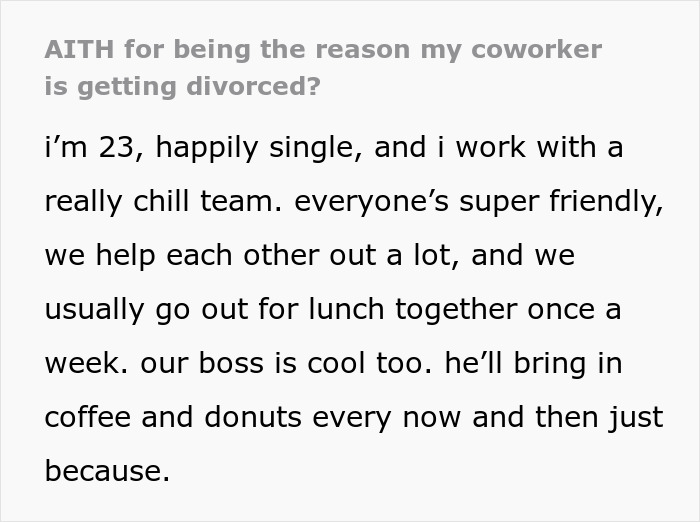
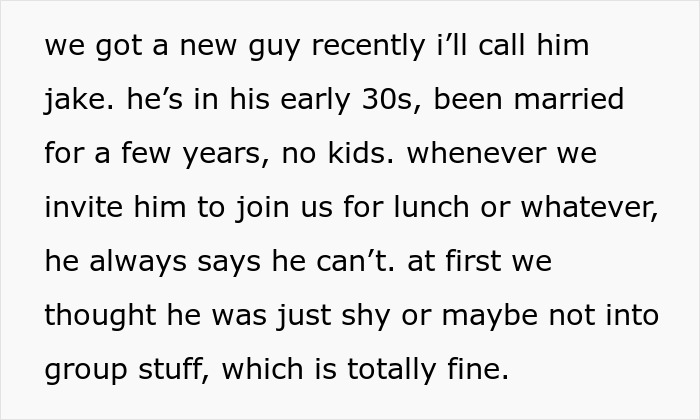
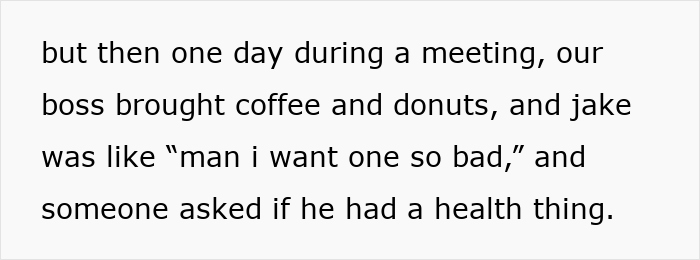
Image credit: BristolCameron

Image credits: Jojo Yuen (sharemyfoodd) / Unsplash (not the actual photo)
He later revealed his wife restricts his diet, which the author then questioned during a meeting



Image credit: BristolCameron

Image credits: stockking / Freepik (not the actual photo)
The colleague further admitted his wife didn’t allow him to join activities if she wasn’t present, and he was encouraged to reconsider the dynamic
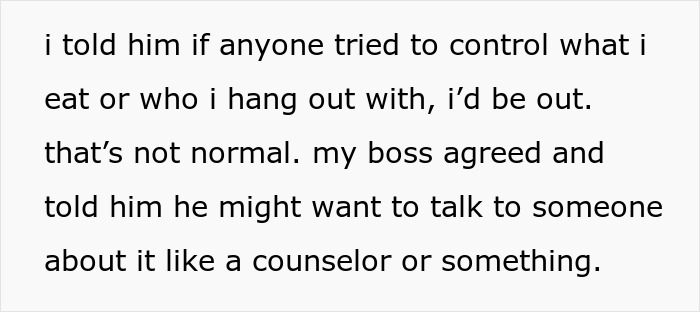

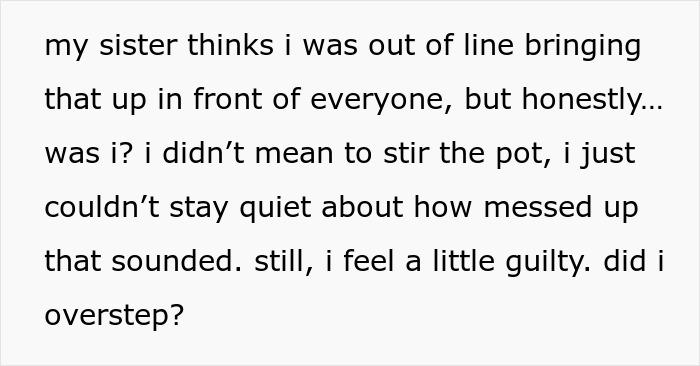
Image credit: BristolCameron
However, when the colleague brought up the dynamic with his wife, he was kicked out, and began consulting a lawyer about separation
The OP started by explaining that they work in a relaxed environment where coworkers support each other and regularly enjoy lunch together. Their boss is also notably generous, occasionally bringing in coffee and donuts, which overall leads to a friendly, communal vibe at the office.
An employee recently joined the company; however, he rarely joined the team for lunches or social outings. Initially, his absence was attributed to shyness or personal preference, which everyone accepted. However, during a coffee-and-donut moment in a meeting, he expressed his desire to have donuts.
Upon hearing this, colleagues became concerned and asked if he couldn’t have any due to health reasons, but the new employee revealed that his wife restricted him from consuming caffeine and sugar. This revelation stunned the team and the OP couldn’t help but ask the employee if his wife’s restrictions were the reason he avoided team lunches.
This candid moment prompted the employee to confirm that he was effectively barred from socializing independently due to his spouse’s controlling rules. The OP and their boss then expressed concern, suggesting counseling. However, following the discussion, the employee had a major conflict with his wife, leading to her kicking him out and his pursuit of legal separation.
This left the OP wrestling with guilt over whether they overstepped, especially since their sister criticized them for asking such a question in front of everyone.
To better understand the dynamics behind controlling relationships and the emotional fallout for friends or coworkers who intervene, Bored Panda spoke with a licensed marriage and family therapist, Steph Anya, who explained that controlling behavior in marriages is more common than people realize and often starts subtly.

Image generated by: kues1 / Freepik (not the actual photo)
“It can appear as one partner gradually dominating decisions, monitoring the other’s time, friendships or social life, or using guilt and intimidation to get their way,” she said, adding that these behaviors are often disguised as concern or love, making them easy to overlook, which is why noticing them early and discussing boundaries is crucial.
When it comes to intervening, Anya emphasized a gentle and supportive approach. “The safest way to help is with gentle, nonjudgmental support,” she explained. She recommended creating a space where the person feels heard, asking questions like, “How are things going at home?” rather than criticizing the controlling partner or pushing them to act.
She also added that offering resources such as hotlines, support groups, or counseling and consistently checking in can be more effective than attempting a direct rescue, while keeping safety for both parties a priority.
Anya also addressed the feelings of guilt someone might experience if their actions indirectly influenced a major life change like in the case of the OP. “It’s important to separate what was within your control from what wasn’t,” she said. “I’d say your intentions matter, but you don’t control someone else’s choices.”
She, however, suggested reflecting on whether one acted with care and honesty. “Guilt doesn’t have to be such a bad emotion. If you can turn that energy into constructive support or learn from the experience, you can transform guilt into personal growth rather than blame. However, if it was done in sincerity, you have to think of the bigger picture.”
Netizens reassured the OP that they were not responsible for the new employee’s marital problems and that the situation likely would have come to a head regardless. They also praised the OP and their boss for helping him recognize the controlling behavior in his marriage.
What do you think about this situation? Do you think the OP was right to speak up, or should they have stayed out of it? We would love to know your thoughts!
This left the author feeling guilty for overstepping, but netizens insisted they did nothing wrong and that they did their colleague a favor
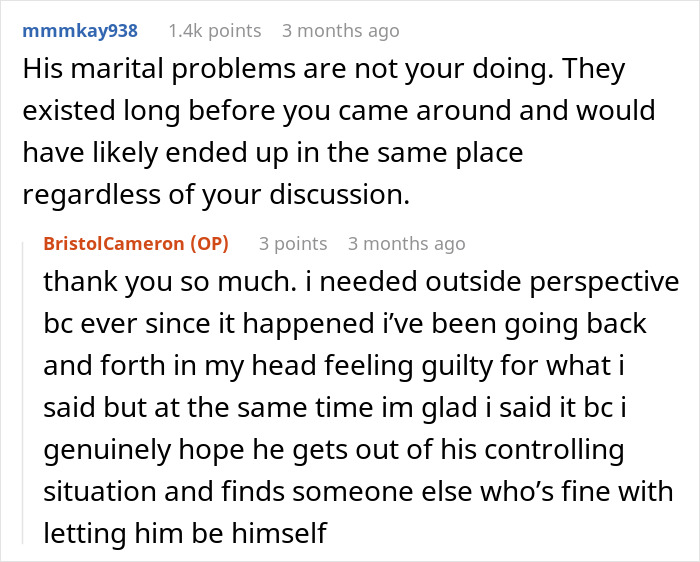
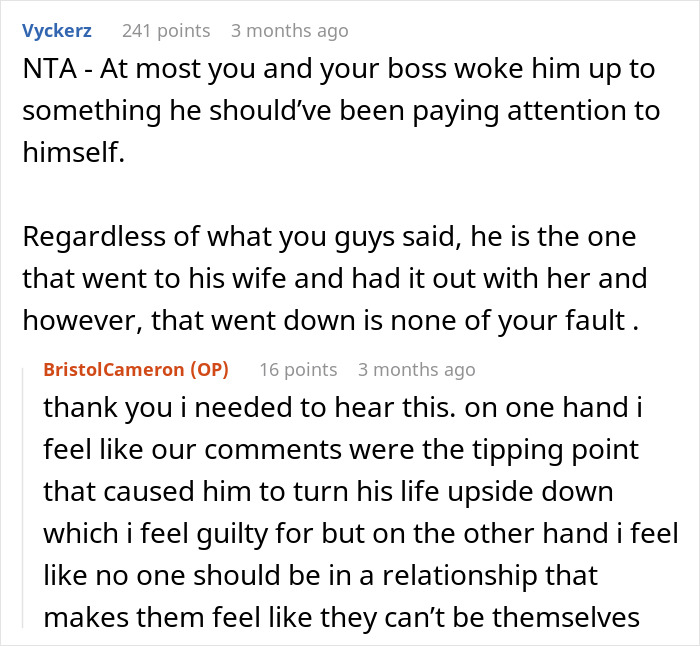
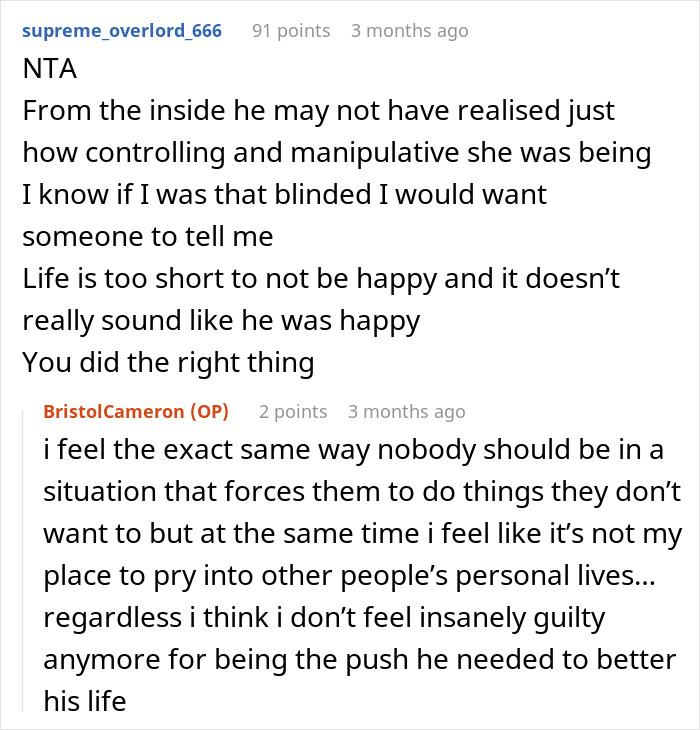

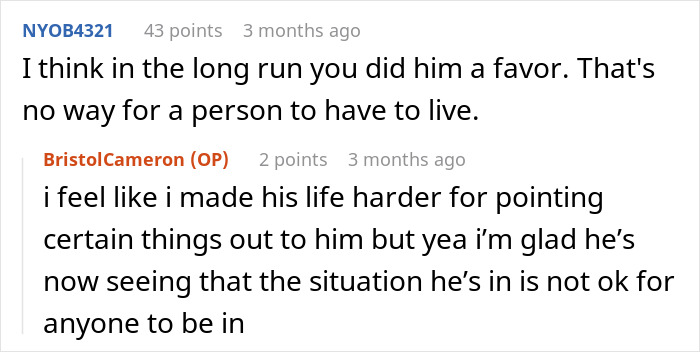
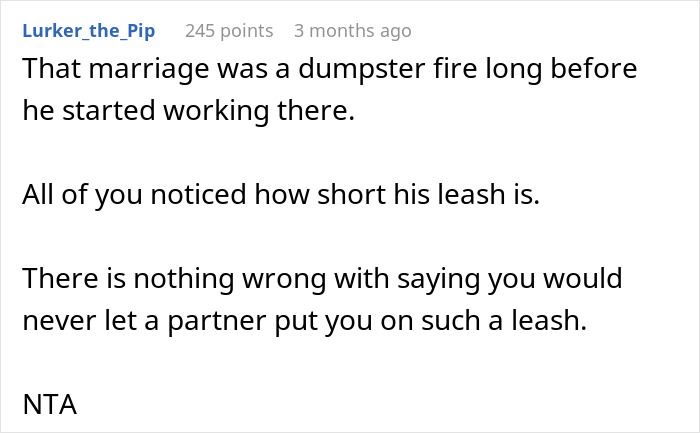
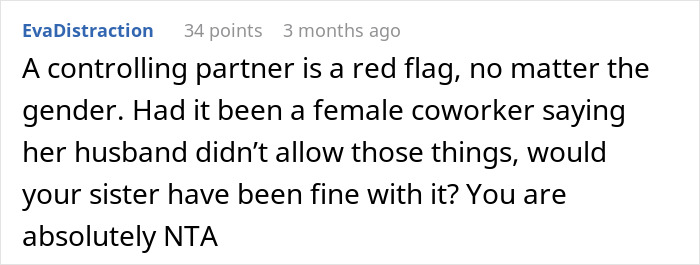


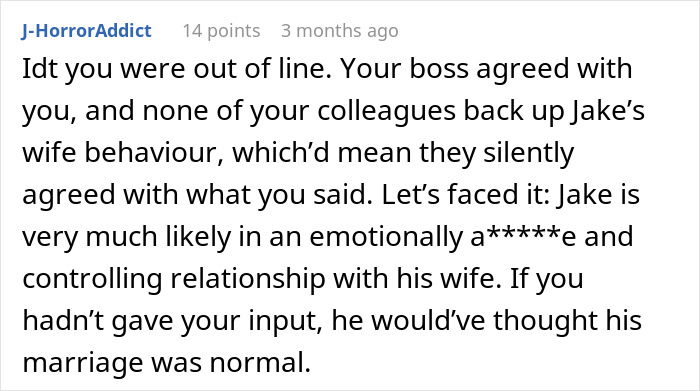


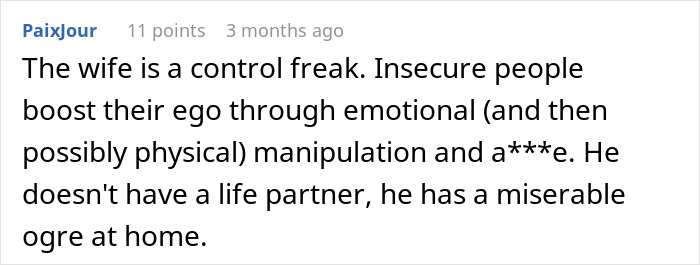

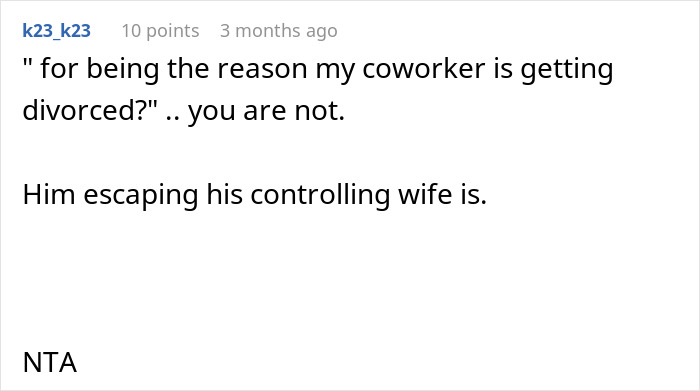



 Follow Us
Follow Us





